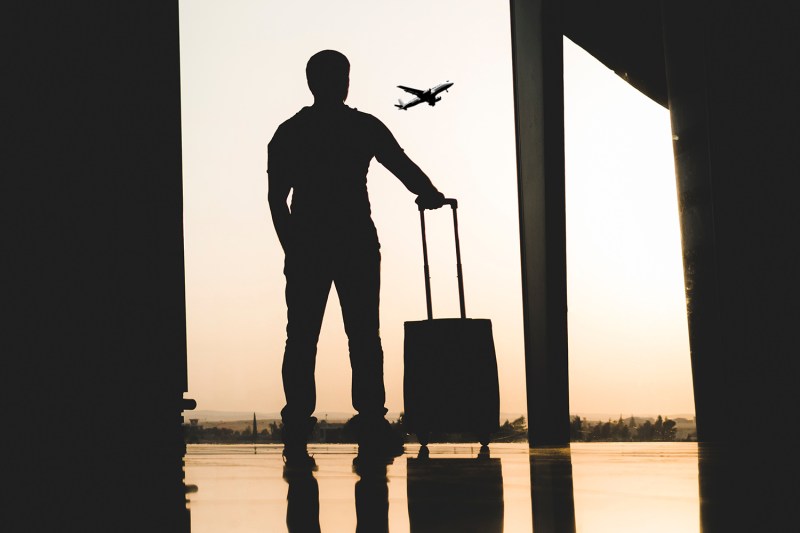Flying is a convenient and efficient way to reach your destination quickly any time of the year, but the confined space and recycled air inside the plane can heighten your risk of getting sick during or just after your flight. Take it from me; catching a cold or the flu during a trip can dampen your plans and keep you from spending time enjoying your trip.
You can significantly reduce the likelihood of falling ill while flying with a few proactive measures. To help you out, I’ve come up with some travel tips that will help you avoid getting sick on a plane, allowing you to enjoy your journey without worrying about any airborne illnesses.
Pre-flight considerations

Preventing illness when you travel starts before you even board the plane. You are much more likely to get sick if you aren’t mentally and physically prepared for your journey.
Boost your immune system
Start preparing for your trip well in advance by adopting a healthy lifestyle. Eating a balanced diet rich in fruits, vegetables, and whole grains is a great way to ensure your body gets the vitamins it needs to thrive. Supplements such as vitamin D, vitamin C, and zinc are also great for boosting your immune system.
Hydrate, hydrate, hydrate
Airplane cabins are notoriously dry, and dehydration can quickly weaken your immune system. Ensure you drink plenty of water before, during, and after your flight. It is also a good idea to avoid excessive caffeine and alcohol consumption, as they can contribute to dehydration.
Rest up
Lack of sleep can compromise your immune system, making you more susceptible to illness. Make sure you are prioritizing sleep for a few days before your flight. This is especially important if you have a long or late-night flight where sleeping may not be possible.
On the flight

Once you are on the plane, it is important to do everything you can to keep your space clean and prevent germs from entering your body. Although this is often easier said than done, you can take a few preventive measures to keep yourself in good health.
Choose the right seat
A study published in the Proceedings of the National Academy of Sciences found that germs from sneezing, coughing, or breathing are unlikely to be directly transmitted beyond 1 meter (3.28 feet) from the infected passenger. Because of this, it’s likely (but not guaranteed) that the window seat is the “healthiest” seat. Sitting in a window seat reduces your likelihood of direct contact with fellow passengers walking down the aisle. Window seats also provide a barrier on one side, minimizing exposure to germs.
Sanitize your space
Bring antibacterial wipes in your carry-on and clean your seat, armrests, and tray table before sitting down. These surfaces often harbor germs from previous flights, so a quick wipe-down can help reduce your exposure risk.
Use air vents strategically
According to NBC News, airplane air is typically circulated through hospital-grade filters designed to remove 99.97% of all bacteria. Use this to your advantage and direct the air vent above your seat to create a personal airflow barrier.
Avoid touching your face
Refrain from touching your face, especially your eyes, nose, and mouth. These are entry points for germs, and keeping your hands away from your face can reduce the risk of infection.
Stay active
If your flight is over two hours long, make it a point to take short walks and stretch periodically to improve circulation. Doing this can help prevent stiffness and boost your overall well-being.
Keep your belongings in the overhead bins
Place as many of your belongings as possible in the overhead bins and refrain from opening them during the flight. Keeping your purse, backpack, or other possessions on the floor exposes them to your shoes, a hotspot for germs. If you can, keep everything you need in the seatback pocket or in the seat with you.
Post-flight practices

Your work isn’t done once you exit the plane. It is essential to continue caring for yourself in the days following your flight.
Continue hydration
After the flight, continue to stay hydrated to counteract the dehydrating effects of air travel. Water will help to flush out toxins and support your body’s natural defenses against illness.
Rest and recover
If you can, give yourself some time to rest and recover after the flight. Jet lag and fatigue can weaken your immune system, so listen to your body and prioritize self-care.
Maintain good hygiene
A little bit of good hygiene goes a long way. Hop in the shower as soon as you can after leaving the airport, wash your hands regularly with soap and water, and use hand sanitizer when necessary.
What to do if you do get sick

If you carefully follow these tips, it will certainly increase your chances of staying healthy while traveling. However, as I know from experience, no matter how careful you are, you can still catch something on your flight or during your travels. If you get seriously sick after traveling, especially if you went outside the country, the CDC recommends calling your healthcare provider when you get home and have the following information available:
- Vaccination history
- The places where you went
- The reason for the trip (pleasure, business, or another reason)
- What you did while traveling (swimming, hiking, etc.)
- The dates of your trip
- Where you stayed
- What you ate and drank
- If you came in contact with any animals
- Did you have any injuries during the trip
- Any bug bites or scratches you got while traveling
- If you had to seek health care or medications during the trip




